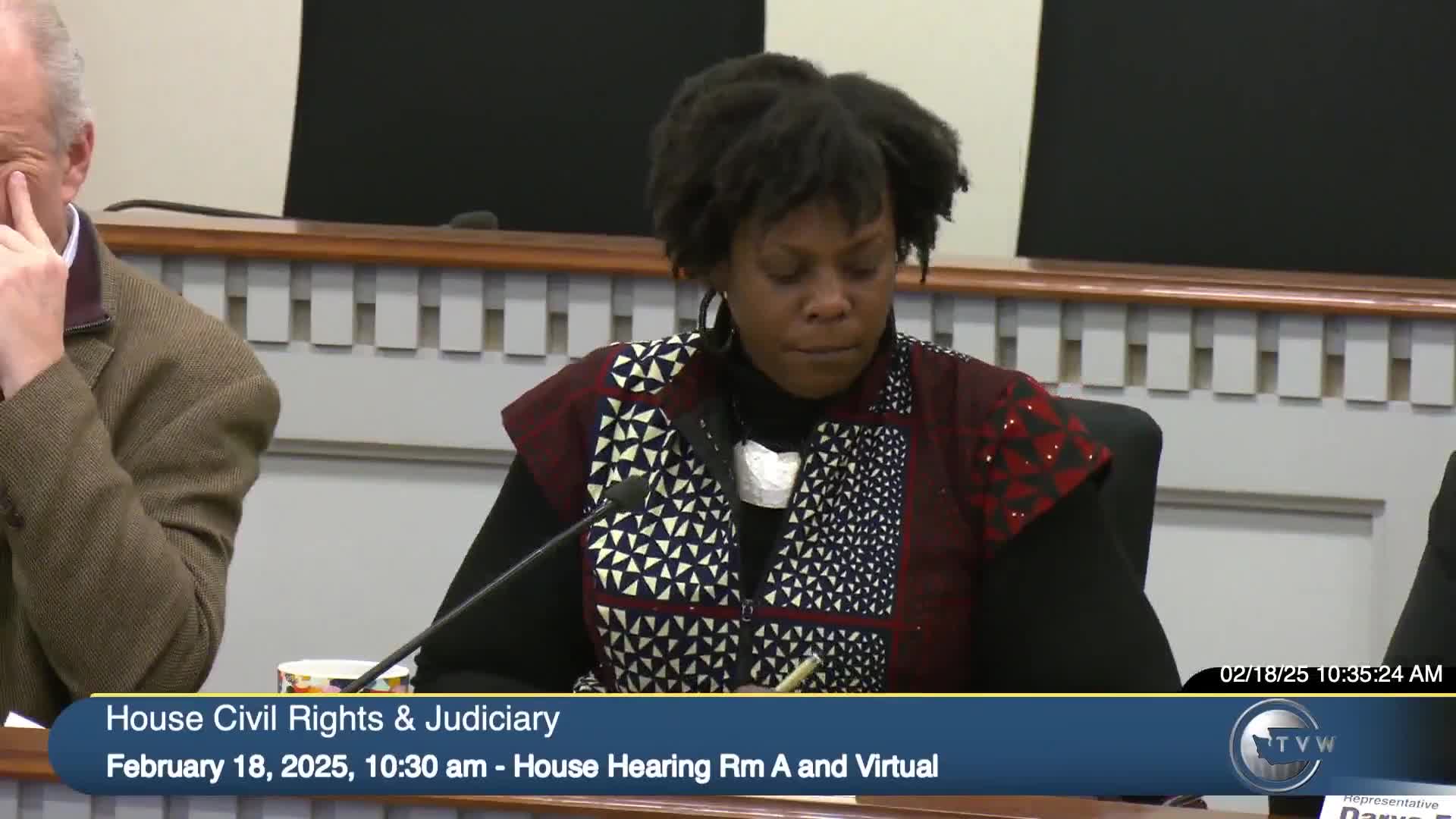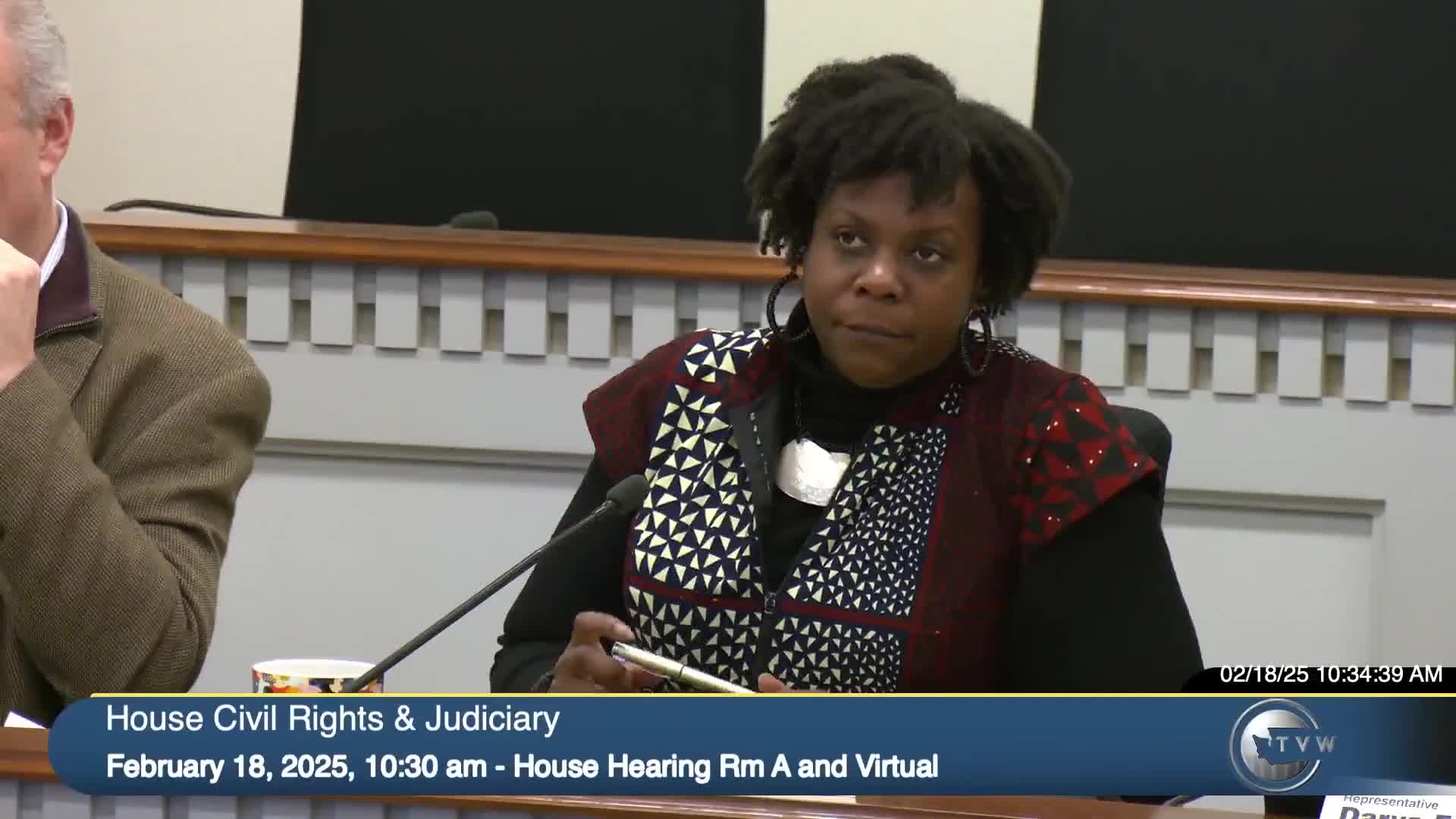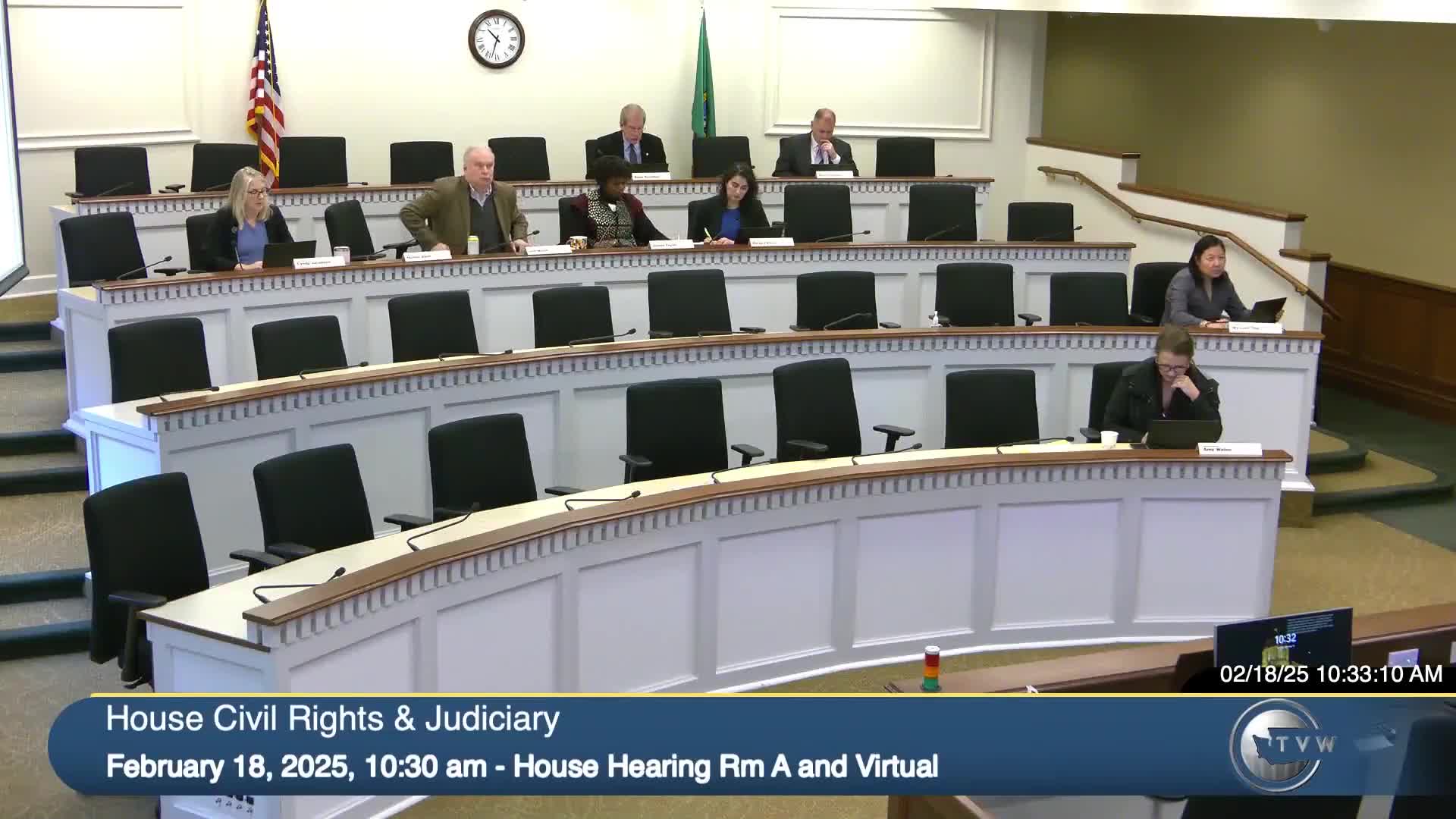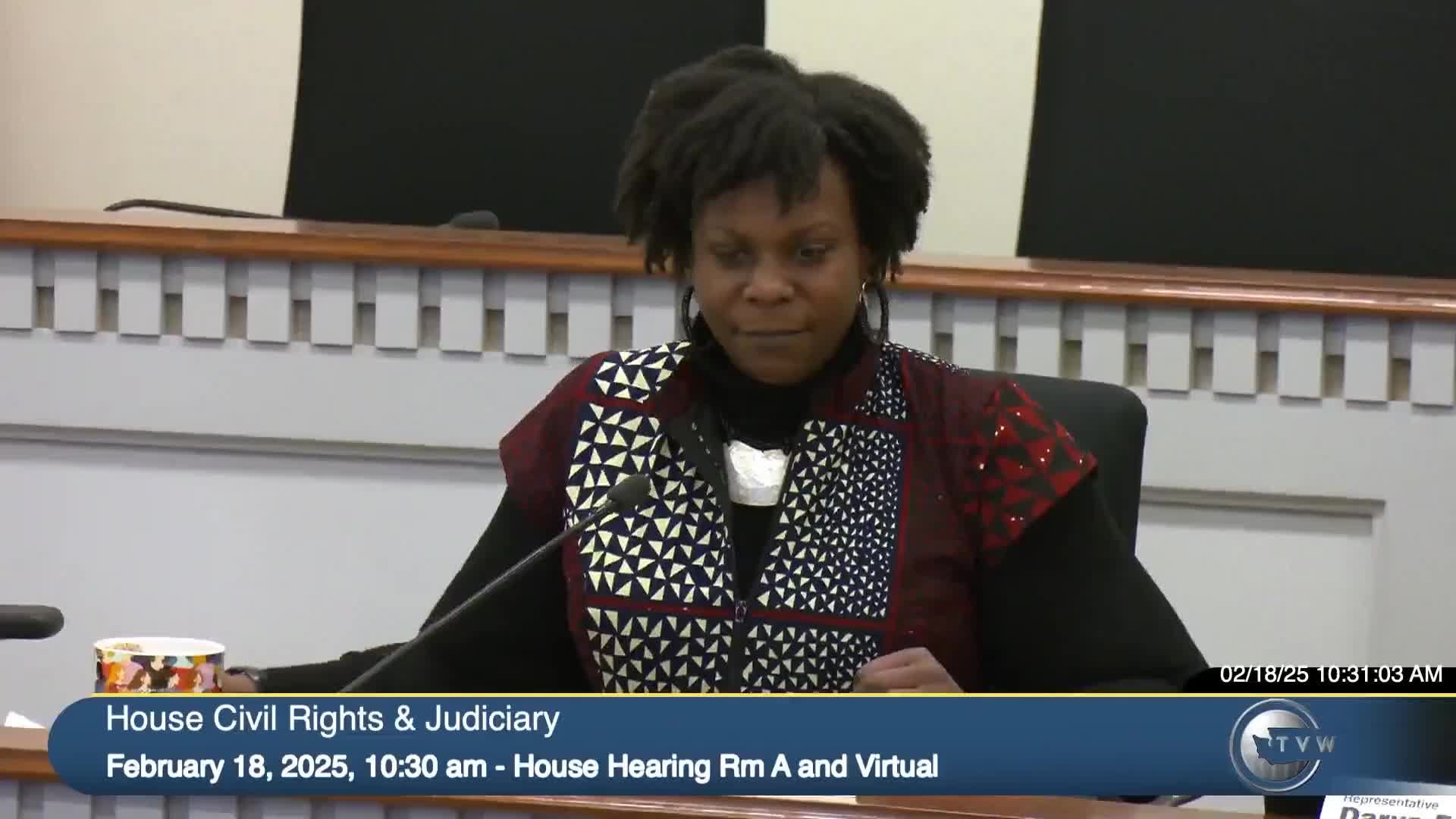Article not found
This article is no longer available. But don't worry—we've gathered other articles that discuss the same topic.

House Bill 1362 reported out to create gambling disorder diversion court pilot

House Bill 1440 moves forward with technical fixes to civil asset forfeiture reporting and proceeds

House Bill 1909 task force to study court inequities advances after amendments

